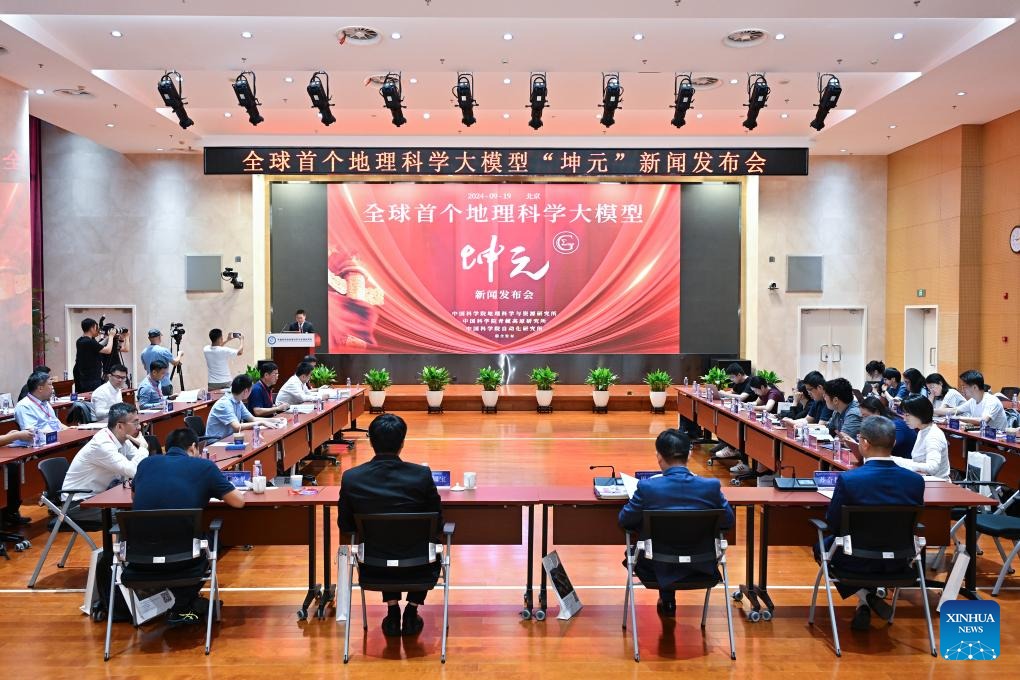Characteristic Chinese 特色漢語(yǔ)
China Today 2023-10-17 16:54


Learning is a part of Chinese culture. Let's review Chinese education from Confucius to today.
The word 學(xué)習(xí) (xué xí), study, in Chinese is composed of two characters: 學(xué) (xué), learn, and 習(xí) (xí), practice. In ancient Chinese, 學(xué) refers to a child learning calculation at home, and 習(xí) to a bird learning to fly. Together they mean "exercise, practice." Learning in Chinese culture is practical and useful, hence the proverb 學(xué)以致用 (xué yǐ zhì yòng), learn to meet practical needs, opposed to the encyclopedic spirit of 學(xué)以致知 (xué yǐ zhì zhī), learn to know. Knowledge in China comes from 苦讀 (kǔ dú), hard study, and inquiry, so it is called 學(xué)問(wèn) (xué wen), learning. As Voltaire said, "Do not judge a man by his answers, but by his questions." The highest state of study should be practice, just as Confucius said, "學(xué)而時(shí)習(xí)之,不亦樂(lè)乎?" (xué ér shí xí zhī, bù yì yuè hū), Is it not a great delight to learn and put knowledge into practice?
The character 學(xué) can form a network of vocabulary related to learning, such as 學(xué)生 (xué sheng), student, which can also be called 學(xué)子(xué zǐ), and 學(xué)徒 (xué tú), apprentice. More examples include 學(xué)童 (xué tóng), schoolchild, 學(xué)齡 (xué líng), school age, 學(xué)期 (xué qī), semester, 學(xué)年 (xué nián), school year, 開(kāi)學(xué) (kāi xué), school starts, and 學(xué)位 (xué wèi), degree. In ancient China, students were also called 書(shū)生 (shū shēng), which literally means someone who makes a living by study. Teachers are 師傅 (shī fu) or, with the same pronunciation, 師父 (shī fu) and they are metaphorically regarded as 第二父母 (dì èr fù mǔ), the student's second parents.
However, learning does not necessarily mean that we learn good things: besides 學(xué)好 (xué hǎo), we can also learn bad things, 學(xué)壞 (xué huài). This is why Confucius speaks of 良師益友 (liáng shī yì yǒu), good teachers and beneficial friends, who believed that 三人行必有我?guī)熝?(sān rén xíng bì yǒu wǒ shī yān), "If three men are walking together, one of them is bound to be good enough to be my teacher." In other words, everyone around you can teach you something.
Because of Confucianism, 老師 (lǎo shī), teacher, is almost a deified character in China. 老師 consists of the characters 老 (lǎo), old, a word indicating respect, and 師 (shī), teacher. Han Yu, a precursor of Neo-Confucianism as well as an essayist and poet during the Tang Dynasty, explained the meaning of 師 with the phrase 師者所以傳道授業(yè)解惑也 (shī zhě suǒ yǐ chuán dào shòu yè jiě huò yě), the teacher is one who enlightens students, imparts knowledge and answers questions. From the Ming and Qing dynasties to the Republic of China, 老師 had been called 先生 (xiān sheng), literally meaning "people born before me," which is used to respectfully address knowledgeable people. At present, 老師 can also be used to address colleagues with senior experience.
The journey of a Chinese student begins in 小學(xué) (xiǎo xué), elementary school, and progresses to 中學(xué) (zhōng xué), middle school, which consists of 初中 (chū zhōng), junior high school, and 高中 (gāo zhōng), senior high school, and then 大學(xué) (dà xué), university.
In China, university is usually described as hard to get in but easy to finish. Though 高考 (gāo kǎo), the National College Entrance Exam, is not as difficult as 科舉考試 (kē jǔ kǎo shì), imperial examinations, it still draws great attention from the public. Getting first place in the National College Entrance Exam is often compared to coming top in the imperial examination. Failing it is like 落榜 (luò bǎng), failing the imperial examination. To prepare for this exam, Chinese students have to 死記硬背 (sǐ jì yìng bèi), memorize by rote. The three years of senior high school are seen as years of 苦修 (kǔ xiū), asceticism. Teachers often ask students to study assiduously and with tenacity.
上大學(xué) (shàng dà xué), attending university, is considered to be the first step to success. After four years' 本科 (běn kē), undergraduate study, one will get a 學(xué)士 (xué shì), bachelor, 文憑 (wén píng), diploma. Postgraduate degrees include 碩士 (shuò shì), Master, and 博士 (bó shì), Doctorate.
In China, 學(xué)校生活 (xué xiào shēng huó), school life, is usually like family life. Chinese call the schools where they have studied 母校 (mǔ xiào), alma mater. Students who are older than you are called 學(xué)長(zhǎng) (xué zhǎng) for boys or 學(xué)姐 (xué jiě) for girls, and students of the following year are called 學(xué)弟 (xué dì) for boys or 學(xué)妹 (xué mèi ) for girls. Fellow students are called 校友(xiào yǒu), schoolmates, and classmates are 同學(xué) (tóng xué), or 同窗 (tóng chuāng).
師生關(guān)系 (shī shēng guān xì), the teacher-student relationship, in China is highly valued. The student must 虛心學(xué)習(xí) (xū xīn xué xí), be modest and eager to learn, and 學(xué)而不厭 (xué ér bù yàn), insatiable in learning. It is expected that teachers 誨人不倦 (huì rén bù juàn), do not tire of teaching. Teachers and students may 教學(xué)相長(zhǎng) (jiào xué xiāng zhǎng), teach and learn from each other. Study is endless, like 學(xué)海無(wú)涯 (xué hǎi wú yá), a boundless sea of knowledge. As we quickly forget, the Chinese say that 好記性不如爛筆頭 (hǎo jì xing bù rú làn bǐ tóu), a good memory is no better than a rotten pen. So what are you waiting for, let's take notes!
Source: China Today
Editor: wanwan

















 英語(yǔ)點(diǎn)津微信
英語(yǔ)點(diǎn)津微信 雙語(yǔ)小程序
雙語(yǔ)小程序